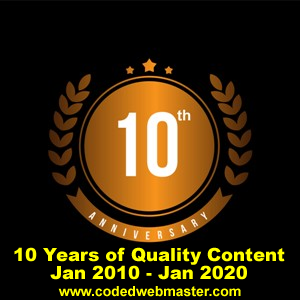CMS platforms have been making the lives of website developers and business owners a lot easier by providing standard features and easy-to-use templates. For years, CMS platforms have been developing to cater novice developers, bloggers and seasoned website designers get their websites up and running. The leading platforms includeWordPress, Magento, and Drupal. There is a lot common between the three platforms that make them super popular among the users. However, each CMS platform also delivers unique features that make the right choice very important for the future of your website.
What are the key features of all three CMS platforms?
Leading Content Management Systems (CMS) should have a few features in common since they aim to serve a broad category of similar website developers. Web Development Servicesoften focus on the fine necessities of their clients to pick a CMS platform that suits their needs the best.
- They are all easy to edit, and they offer superb content management services for all webmasters.
- They provide a great collection of toolsets for searching, indexing and fetching content.
- The top 3 CMS options for business websites come with SEO friendly features.
- Several templates and themes allow you to create website which has unique looking, functional.
- They are open source and free.
- They have dedicated user communities and developers’ forums for round-the-clock support.
Why do novice users prefer WordPress?
WordPress is the leading CMS platform, and it powers over 28% of the web right now. It has a dedicated e-commerce plug-in – WooCommerce. This one is a one-in-all powerful plug-in that has been powering over 30% of all existing e-commerce stores. Amateurs prefer WordPress since it demands no coding knowledge. Although it uses PHP in the backend, you can create your SEO friendly blog or e-commerce store without writing or edit a single line of code.
WordPress comes with an inbuilt editor that enables the addition of images and videos along with your text. You can edit these images to make them SEO friendly as well. WordPress is the most suitable for creating complex website designs using the simplest of the methods.
Does WordPress have limitations?
Like all leading CMS platforms, even WordPress comes with its own set of limitations.
- Themes – WordPress might have a lot of free and premium themes, but WooCommerce only has a few options that are fully compatible. Choosing your website theme can be limiting while working with WooCommerce.
- Support – technically, WordPress has unlimited support in the form of online communities. However, WooCommerce does not have satisfactory professional support.
- Security – WooCommerce needs updating all the time, or you can have a problem with data security. Along with WordPress, all its plugins require constant updates for optimum performance.
Is Drupal the perfect e-commerce CMS for you?
Drupal is perfect for developers looking for flexibility. This CMS engine can run smaller websites and larger social networking services perfectly due to its high levels of flexibility. It is absolutely developer oriented, but it is indeed user-friendly. It is a better option for e-commerce stores since it offers better management options for developers of all expertise. The Drupal Commerce version is inherently SEO friendly and can produce SEO friendly URLs too. It pampers users with readily available, a wide range of modules and a whopping 630,000-member community supports it.
What are the major disadvantages of using Drupal?
- Steep learning curve – the framework of this CMS needs some dedicated learning time. You need to focus on learning Drupal in case you have been using other CMS platforms all along.
- Customization – although Drupal is very flexible and exhibits high levels of compatibility with several servers, browsers, and OSx, it can be stubborn towards customization in the hands of a novice. It requires a tech-savvy and code-savvy person to manipulate Drupal templates.
- Can slow the server down – Drupal offers a wide range of extensions and features, this can sometimes have a negative effect on the server speed. Drupal demands a lot of resources as compared to its contemporary CMS platforms handling similar sites and data.
Which is the best CMS platform for advanced programmers?
Magento is a highly flexible, customizable and powerful CMS platform for developers with a working knowledge of programming languages. To manage Magento templates, modules and websites it is better to have a little understanding of PHP, CSS, and HTML. It has three most popular versions in use, and the latest one requires an FTP connection, to begin with. You can think, ‘that’s not very user-friendly,’ but Magento offers new heights of flexibility that most website builders and CMS engines do not offer. Using Magento you can –
- Build an e-commerce store from scratch
- Indulge in website performance analytics
- Access a new world of responsive designs and mobile friendly website features
- Control website modules and functions through a centralized administration.
- Include new marketing and SEO modules on your website.
- Access better product management options, inventory management and payment security with Magento tools and modules.
What are the limitations that bind Magento?
Magento powers some key e-commerce sites across the world, but even then, it has a few limitations you need to be aware of.
- The price of the process – Magento is open source, but security, SEO optimization, and server optimization are not cheap. The enterprise editions of e-commerce stores come with a pretty price tag.
- Bugs in extensions – any member of the community can develop extensions for Magento. It is up to the user to find out which ones are optimal and which are buggy. These extensions can be free, or they can carry a price tag, depending on their finesse and the expertise of the developer.
- Lack of themes – Magento 2.0 does not have a lot of free or paid premium themes. If you want some theme options, go with 1.9. fully-responsive themes for e-commerce stores are widely available for the previous versions of Magento.
Almost all CMS platforms have their salient traits. Depending on your expertise, needs, and resources you should decide going with WordPress, Magento or Drupal. Their popularity and glamour should not drive your choice. Make a shortlist of the main features you need, your website development budget, ease of manipulation and SEO features before you move with your choice.




